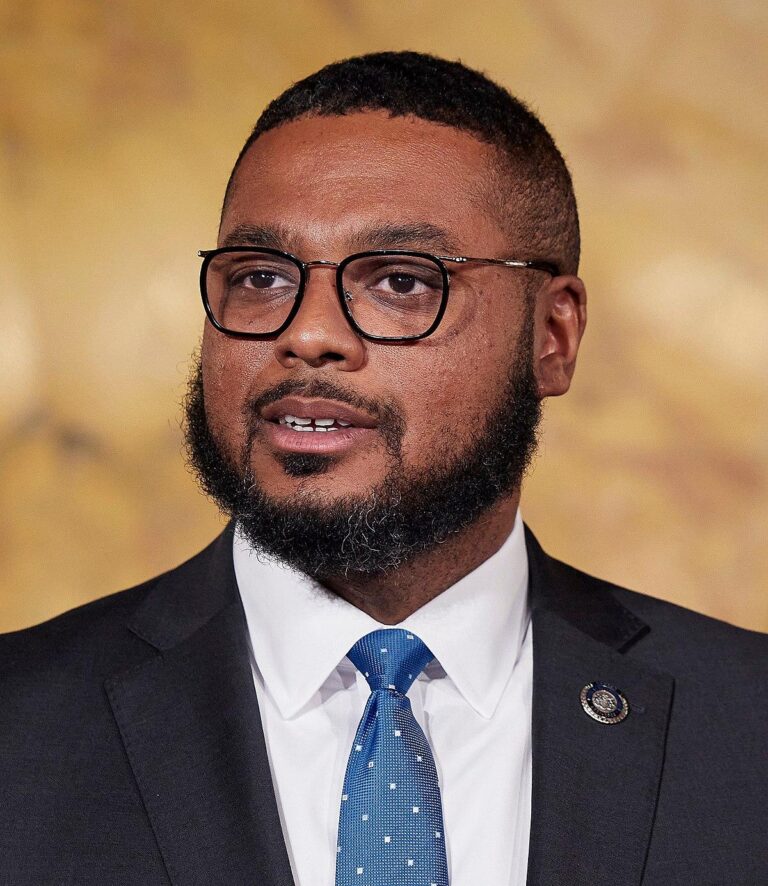Expanding Afterschool Programs to Empower North Philadelphia Youth
Enhancing Education and Safety Through Structured Afterschool Engagement
Lieutenant Governor Austin Davis is leading a transformative campaign to broaden afterschool programming throughout North Philadelphia, aiming to fill critical gaps in youth services. This initiative prioritizes creating safe, supportive environments during the hours after school when students are most vulnerable. By integrating academic assistance with enriching extracurricular activities, the program seeks to nurture both educational growth and community safety. Collaborations with local schools and community hubs are central to delivering customized tutoring, mentorship, and recreational opportunities that keep children engaged and secure until their families return home.
Key elements of the program include:
- Academic Support: Tailored tutoring sessions, hands-on STEM activities, and literacy enhancement programs.
- Safety Protocols: Enhanced supervision, reliable transportation options, and partnerships with neighborhood watch initiatives.
- Community Involvement: Family counseling services and youth leadership development workshops.
| Program Component | Intended Outcome | Community Collaborator |
|---|---|---|
| Homework Help | Boosted Academic Achievement | Public Libraries |
| Secure Transportation | Lowered After-School Incidents | City Transit Services |
| Mentorship Programs | Improved Social Competencies | Local Nonprofits |
Advocating for Increased Investment and Community Collaboration
Lieutenant Governor Davis is actively pushing for expanded financial backing to scale afterschool initiatives across North Philadelphia. Recognizing the vital role these programs play in youth development and neighborhood safety, Davis has called for enhanced state funding and stronger alliances among schools, nonprofits, and businesses. His recent visits to community centers highlighted the importance of accessible, high-quality programs tailored to the unique needs of local families.
- Increase state grants dedicated to afterschool engagement
- Foster partnerships between educational institutions, nonprofits, and local enterprises
- Establish clear metrics to evaluate program effectiveness and youth progress
- Ensure programming inclusivity that reflects the community’s diversity
Preliminary data from pilot programs receiving augmented funding reveal promising improvements in student attendance and academic results. This strategic investment aims to build sustainable afterschool environments that empower youth academically and socially, while also contributing to a decline in juvenile crime rates.
| Aspect | Current Level | Goal by 2025 |
|---|---|---|
| State Funding | $2.5 Million | $5 Million |
| Participating Locations | 15 | 30 |
| Student Enrollment | 1,200 | 3,000+ |
Bridging Opportunity Gaps Through Strategic Local Partnerships
Addressing longstanding educational and social inequities, the initiative emphasizes the strength of community collaboration. By uniting neighborhood schools, nonprofits, and civic leaders, the program builds a comprehensive support system that extends learning and personal development beyond the classroom. This holistic approach targets academic success alongside mental health, skill acquisition, and cultural enrichment.
The multifaceted strategy includes:
- Targeted tutoring and mentorship to elevate student confidence and achievement
- Accessible recreational activities promoting physical health and social engagement
- Community events designed to foster family involvement and neighborhood cohesion
- Career readiness programs preparing teens for workforce entry
| Partner | Contribution | Expected Benefit |
|---|---|---|
| Schools | Provide facilities and educators | Expanded tutoring services |
| Community Centers | Host cultural and recreational programs | Increased youth participation |
| Nonprofits | Deliver specialized workshops and mentoring | Enhanced skills and self-esteem |
| Local Businesses | Offer internships and job training | Improved employment readiness |
Prioritizing Mental Health and Recreational Support for Youth Well-being
In response to rising concerns about youth mental health, state officials stress the necessity of integrating counseling and recreational programs within afterschool offerings. The initiative aims to provide professional mental health support alongside activities that encourage resilience, cooperation, and emotional balance. Experts highlight these resources as crucial in helping young people navigate the increasing social and economic challenges they face.
Program highlights include:
- On-site mental health professionals available during and after school hours
- Inclusive community sports leagues fostering teamwork and physical fitness
- Creative arts sessions encouraging self-expression and stress management
- Peer mentorship programs designed to build social networks and leadership abilities
| Program Feature | Target Audience | Anticipated Outcome |
|---|---|---|
| Counseling Services | All Afterschool Participants | Enhanced mental health and coping skills |
| Sports Leagues | Children Ages 8-16 | Improved teamwork and physical health |
| Arts Workshops | Preteens and Teens | Reduced anxiety and increased creativity |
| Peer Mentoring | High School Students | Stronger community ties and leadership growth |
Looking Ahead: A Model for Youth Empowerment and Community Growth
As Lieutenant Governor Davis continues to champion the expansion of afterschool programs in North Philadelphia, this initiative represents a vital investment in the city’s youth. By addressing educational inequities and providing safe, nurturing spaces, the program has the potential to become a blueprint for other urban areas seeking to uplift their young populations. The upcoming months will be crucial in shaping the program’s reach and effectiveness, reflecting a steadfast commitment to fostering opportunity, safety, and personal growth beyond the classroom walls.








